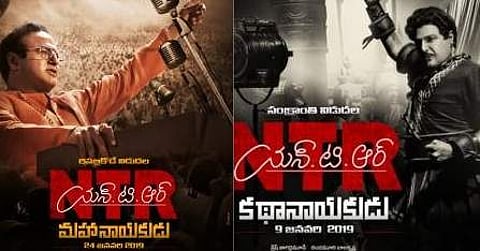

2018 gave us some of the most memorable films made in Telugu cinema, both in terms of box office revenue and critical acclaim. The New Year was ushered in with great expectation due to the phenomenal success, growth of content-driven films, and the arrival of new talent in our cinema. It seemed we were on the brink of something great; it was an opportunity to build upon Telugu cinema’s expanding national reach.
Shockingly though, the first quarter of this year hasn’t exactly lived up to all the optimism. During the last three months, as many as 35 Telugu films have been released but only all of two films have brought in great returns at the box office. Producer Ravi Shankar, who’s releasing Lakshmi’s NTR in the Telugu states, agrees that the response to films has been cold so far. “Only F2: Fun and Frustration seems to have really been celebrated. And there was of course 118 which raked in some money. In comparison with last year, it has been extraordinarily disappointing so far. We had three super hits, one hit, and two above-average grossers by this time, last year. So far, we have just had two hits. It seems our industry’s not going through a great time,” he says.
The year's first major (festive) release, NTR Kathanayakudu, starring Nandamuri Balakrishna and Vidya Balan, has turned out to be a dramatic disappointment. Its follow-up, NTR Mahanayakudu, was rejected too, and is thought of as the biggest failure of Nandamuri Balakrishna's career so far. Another star-fuelled extravaganza, Vinaya Vidheya Rama, starring Ram Charan and directed by Boyapati Srinu, turned out to be a dud too. Akhil Akkineni's Mr. Majnu didn’t exactly thrill audiences either. Ravi Shankar attributes the failure to poor storytelling. “We are still extremely skilled, but the failures have all been poorly planned, and the storytelling has been formulaic. We need to control our budgets, and rethink how we make films and promote them,” he asserts.
A popular director, on condition of anonymity, believes that the reduced release window, and over-crowding of releases has also been a reason for the mediocre response. “There is too much competition during festivals, and we find that when that happens, only one film can truly survive — like how F2 did during Sankranthi,” says the director.
He also insists that the audiences' growing affinity towards OTT platforms is working against the industry too. “Audiences have become discerning and are unwilling to spend money if a film doesn’t seem to be living up to the expectations. Instead, they wait for it to release on platforms like Hotstar, Netflix and Amazon Prime, so they can watch it at their own convenience,” says the director.
Actor Kalyan Ram agrees that the streaming platforms have begun to affect the theatrical run of a film. "The average life of a film is now just one-two weeks. For some films, this may expand up to three-four weeks. So, in order for a film to yield profits, a producer has to strike a deal with television channels and OTT platforms. However, if a film is available for streaming within three-four weeks of its release, how can the film survive in theatres?" he rues, adding, "Personally, I'm hoping to get in touch with these companies and request them to maintain at least 45-60 days window for my films, as it not only increases the life of a film in theaters but also translates into some collections at the box-office."
Ravi Shankar’s optimism hasn’t waned though, as he believes that the next few quarters could provide more reason for joy. "It will get better from April as we have films like Majili, Jersey, Maharshi, Saaho, Dear Comrade and Sye Raa Narasimha Reddy lined up. I’m banking on them to do well."